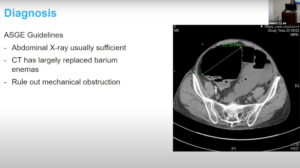NEW YORK (Reuters Health) – For hepatocellular carcinomas (HCC) larger than 2 cm, radiofrequency ablation (RFA) is the best ablative therapy, a meta-analysis shows – but for smaller tumors, it’s not clear whether RFA is best or whether cheaper, less invasive treatments work just as well.
“The data confirm better results for RFA compared to the other techniques, but what is new is that the data are not conclusive for hepatocellular carcinomas up to 2 cm,” senior author Dr. Andrew Kenneth Burroughs, from Royal Free Hospital, London, told Reuters Health by email.
“Given that both alcohol and acetic acid are far, far cheaper, this is an area that needs a prospective randomized trial as we have suggested. Developing countries do not have wide availability of RFA so if a cheaper alternative is as effective for a subgroup this is helpful.”
For the analysis, reported online January 18th in the Journal of Hepatology, Dr. Burroughs and his colleagues searched MEDLINE and other sources for randomized trials comparing survival, recurrence, tumor necrosis, and complications with RFA, percutaneous ethanol injection, and percutaneous acetic acid injection.
All told, they found 8 studies that involved 1035 patients in nine comparisons. Five studies compared RFA vs. ethanol injection, 2 compared ethanol vs. acetic acid injection, and 1 compared all three.
Compared with ethanol injection, RFA provided better survival (OR, 0.52, p = 0.001), complete tumor necrosis, and local recurrence. On further analysis, however, RFA provided no significant advantage with tumors of 2 cm or less.
Acetic acid injection was comparable to ethanol injection regarding survival and local recurrence, but required fewer treatment sessions.
In the direct and indirect comparisons, acetic acid injection provided similar outcomes to RFA with the exception of a higher local recurrence rate.
Along with trials in patients with smaller lesions, more studies are needed directly comparing all three treatment modalities, the authors note. In addition, RFA should be compared with transarterial embolization, which is currently considered standard therapy, they add.
Reference:
J Hepatol 2010.




